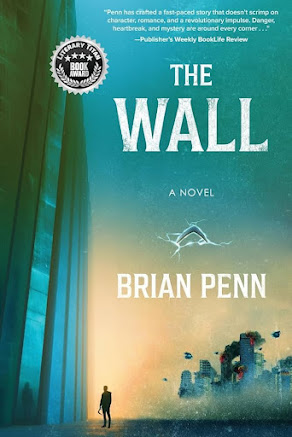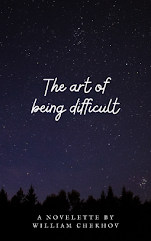the Wall by Brian Penn // why I DNF'ed this dystopian at 14 percent
In the vast universe of literature, where each book is like its own world, we readers often embark on journeys with high hopes, only to find ourselves disappointed. "The Wall" by Brian Penn was a book like that for me. It promised to be such an expedition at first, offering a premise that really piqued my interest. But somewhere down the line, the expectation didn’t meet reality.
In fact, “The Wall” (regrettably) didn’t hold my attention beyond the 14% mark. So, with a somewhat heavy heart, I’m going to be sharing my candid thoughts on “The Wall” in this review post.
When his uncle offers him a once-in-a-lifetime opportunity, Asher is faced with an impossible task: impersonate a talented Zion soldier and risk his life in the Canonization, a brutal gladiator duel against a champion who never loses. But defeating an unbeatable opponent and reuniting with his one true love is only the beginning. Asher thought the second life policy was outlawed. But the truth is far more sinister, and he soon finds himself caught up in the middle of a terrifying rebellion that will decide the fate of both sides of the Wall.
As an explosive and futuristic sci-fi adventure that artfully weaves together high-octane action and heart-stopping romance, The Wall presents an unforgettable YA dystopia that's perfect for fans of Divergent, The Hunger Games, and Dune.
I received an ARC copy of "The Wall" via Netgalley, but all thoughts are my own.
a summary
"The Wall" by Brian Penn is an engrossing dystopian novel that has garnered attention for its unique storyline, gripping narrative, and thematic depth. Set in the year 2099, the story unfolds in a divided world where a massive wall separates the affluent state of Zion from the impoverished MiddleLand. Asher, the protagonist, is a low-class citizen or 'Dreck', caught in the cruel machinations of a tyrannical ruler. His journey is marked by loss, love, and the quest for rebellion against a system that uses human lives for the recreation of those who have previously lived.
Seems interesting, right? It did to me. But once I read it, my opinions changed.
the “worldbuilding”
The worldbuilding of "The Wall" was like a puzzle with missing pieces. Vague landscapes and shadowy figures that never fully materialized left me groping for a sense of place. The foundation of a vast, intriguing universe was there, but it felt like staring at a map with no legend.
Why? Well, for one, the descriptions felt superficial, leaving me yearning for the depth and detail that transform settings into characters in their own right. This world, which should have been the stage for a compelling tale, instead felt like a backdrop hastily sketched and forgotten.
the pacing (too slow for my taste)
Each page turn felt like wading through a marsh. At 14%, a number that now feels oddly precise in my memory, I couldn't take it anymore. This aspect of pacing is significant because it can impact the reader's engagement with the story.
Slow pacing in a novel, especially in the dystopian genre, can result in varied reader experiences. For some people, the slow sections offered deeper insights into the characters' internal worlds, societal structures, or thematic explorations, enriching the narrative depth. But for me, these slower moments might detracted from the momentum of the plot.
For readers like me who are primarily attracted to dystopian novels for their action-packed narratives and fast-moving plots, these periods of slow pacing were hurdles to our reading enjoyment.
the silver linings
In the gloaming of my journey through "The Wall," it's only fair to acknowledge the fleeting sparks of brilliance that illuminated the path. "The Wall" might still hold allure for others. Penn's narrative voice and the premise itself carry a certain charm, hinting at potential that could resonate with readers more patient than I. Those drawn to explorations of themes perhaps more subtly woven through the tapestry of the tale might find what I could not.
conclusion
In conclusion, "The Wall" by Brian Penn, despite its promising concept and ambitious thematic goals, was not a match for my literary tastes. Others may find value in its pages, uncovering layers and messages that eluded me in my brief journey. However, for those who share my preferences for dynamic characters, swift pacing, and compelling storytelling, this book might not be the first recommendation I'd make.
Thank you for reading my review!


